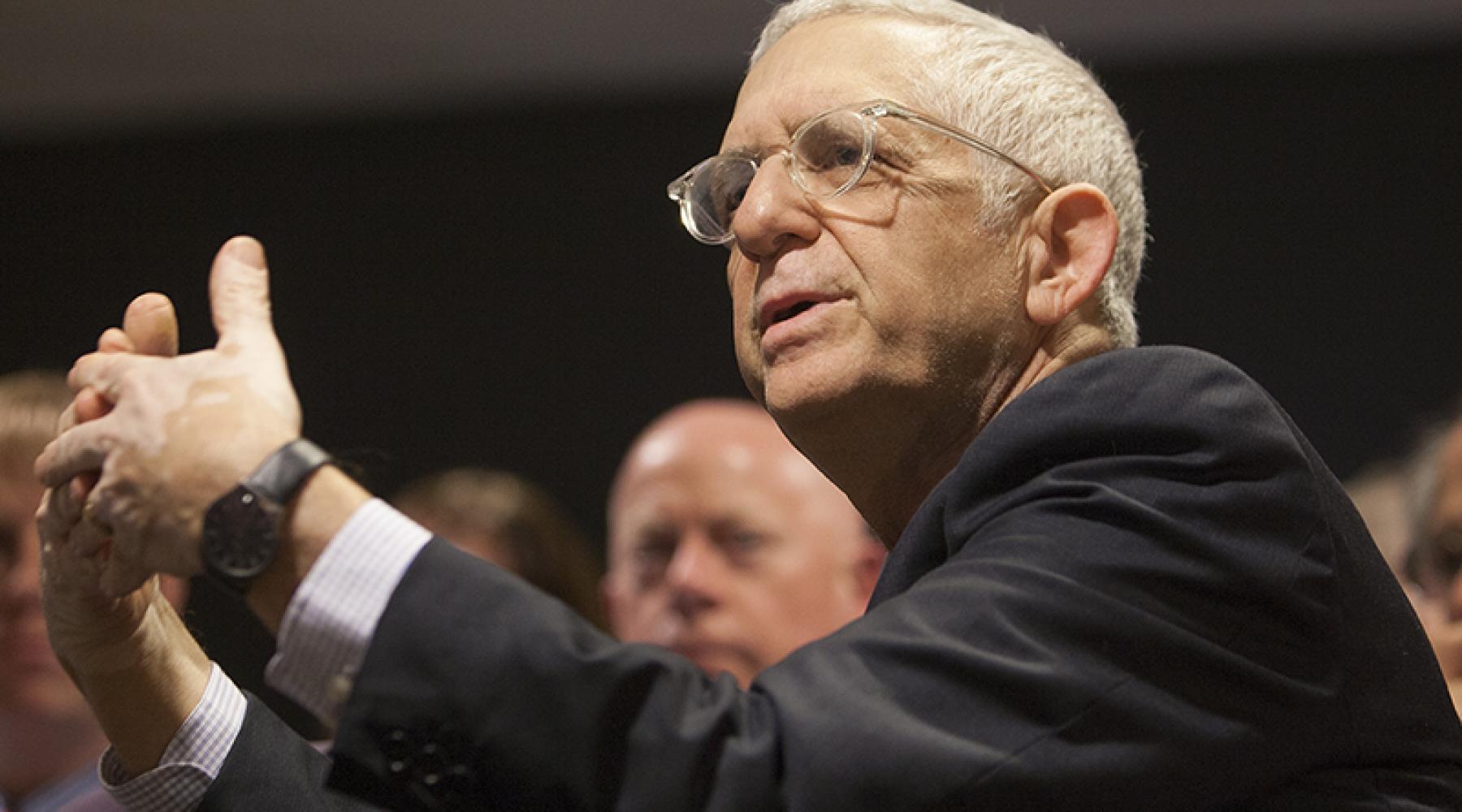
Transitioning With Grace
Samuel B. Bacharach
McKelvey-Grant Professor
Director, Institute for Workplace Studies & Smithers Institute
“What is the essence of ILR?
The question itself suggests there is one line, one metaphor, one word that will capture it all.
ILR, for the most part, is a shifting series of parallel experiences. For me, ILR has been part and parcel of my own personal journey.
When I came to the New York State School of Industrial and Labor Relations as a faculty member in 1974, I was part of a transitional generation. We Baby Boomers were just coming into our own. And for a period of time, we had the opportunity to glean the essence of ILR from the school’s founders and visionaries.
Their deep commitment to ILR was grounded in their personal experience. Maurice Neufeld working on General Patton’s staff, Lois Gray working on the Japanese code, Jean McKelvey serving on the wartime labor board, Alice Cook bringing labor education to post-war Germany, and John Windmuller on the St. Louis — these were individuals borne of their histories.
They were also intellectual giants. During one of my first years at the ILR School, I sat in on Milton Konvitz’s course ‘American Ideals.’ As an undergraduate, I had read the work he did with Sidney Hook on American pragmatism.
From the start, ILR was an intimate experience in which I was surrounded by mentors and friends. David Lipsky, a then-new professor, showed me the ropes. Professor Larry Williams told me if I couldn’t put my thesis on an index card, I had no thesis. Blunt challenges from my students taught me humility.
Over the years, under the leadership of remarkable deans, ILR has evolved. We’ve become more professionally focused, specialized and, maybe, a bit more worldly. We’ve expanded our scope while continuing the constructive tension between our academic and applied missions. We keep asking ourselves how we’re different from traditional economics, sociology, psychology and history departments. We seem to be haunted by what makes us different from a business school. The sense of mission that came out of World War II may have been diluted, but I would like to believe that in some unconscious way, it is the thing that makes us different and holds us together.
My experience in ILR has been about the little things. Our small size is our advantage, and it nurtures our spirit. Whether it’s Nick Salvatore dragging me to a jazz club in New York, Ed Lawler and I trying to figure out where we go to from here, Rob Manfred and Paul Salvatore mentoring my interns in New York City, hanging out in Tel Aviv with Bill Sonnenstuhl, Esta Bigler and I comparing the real Brooklyn with the real Bronx, walking the Gettysburg battlefield the day after Christmas with George Boyer, or Harry Katz talking to my son about the virtues of coming to the ILR School — ILR for me is about relationships.
I’ll share two memories of my experiences with students — one an undergraduate, one a graduate student.
Many years ago, I had an undergraduate assistant. I was so impressed with his work that I was convinced he needed to get a Ph.D. in economics. He ignored my advice, and applied and was admitted to Harvard Law School. The world lost a great economist, and J.P. Morgan gained a CFO — Doug Braunstein.
Another student stayed for a year after his B.A. to earn a master’s degree. But, under no condition did he want to continue beyond that. I, again, was convinced he had talent as an academic, and I insisted that he qualify for the Ph.D. He hesitated and complained, but I persevered, and he qualified, In this case, I had a triumph. He returned and finished his Ph.D. at ILR. Today, Peter Bamberger is an organizational psychologist of international renown, and we continue our 30-year collaboration, writing books and articles and conducting research.
What’s ILR like today? On the surface, it’s different in many ways, and that’s the way it should be. However, as long as we remain committed to our students and each other, with the fundamental belief that the ‘world of work’ is important, I think we will continue to stand on the shoulders of the World War II generation I so admire.
What remains for me and those who came along with me is to spend the next few years transitioning with grace — supporting our younger colleagues in their efforts to develop their own ILR, while reminding them that this isn't just a job, but an obligation to a tradition. In the emerging corporate university era, ILR is not just another school. It's an institution with a soul."


